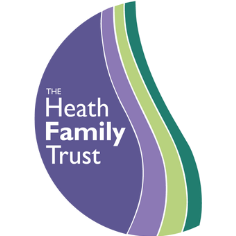RE
Intent of our Religious Education curriculum
R-E-A-C-H
Retention – Extending Vocab - Application – Cultural Capital – Halsnead Values
- For children to gain an understanding of the virtues of respect and empathy, which are important in our diverse society
- For children to develop knowledge of their key role in our world and in promoting social cohesion
- For children to be intellectually challenged and personally enriched through experiences within this curriculum area
- For children to be equipped to foster civilised debate and reasoned argument, in order to understand the place of religion and belief in the modern world.
- For children to have a deeper understanding of the nature, diversity and impact of religion and belief in the contemporary world
- For children to use enquiry effectively when investigating religions
- For children to develop their reflection and creativity effectively to enable them to deepen their understanding of religious material.
- For children to be engaged from the outset in ‘big questions’ providing them with a context for carrying out an investigation.
Implementation of our Religious Education curriculum
- A carefully sequenced RE curriculum allows children to build on prior religious knowledge.
- Each enquiry begins with a big question which enables the pupils to look at the beliefs, values and living religious traditions of each religion studied.
- Each year group will study 3 units of Christianity and 3 units of world religions per year.
- Enquiries have been mapped out in a 2 year cycle, Cycle A and Cycle B.
- Cycle A focuses on Christianity under the sub headings of God, Jesus and church and then includes onto specific world religions
- Cycle B builds upon learning from Cycle A continuing to develop knowledge of both Christianity and world religions.
- Enquiries have been sequenced based on development of subject specific understanding, built from our children’s own life experiences.
- Retention opportunities are systematically planned in.
- Knowledge links are mapped out across subjects and year groups. These are clearer mapped out in all lessons to enable children to develop strong schema.
- Knowledge planners provide the structure to learning, specifying key knowledge and vocabulary that we want all children to be fluent with.
- Acting as a planning, teaching and assessment tool, the knowledge Planner makes it clear to teachers, pupils and parents what knowledge and vocabulary is expected to be learnt by the end of the unit and within lessons.
- Knowledge planners highlight outcomes through exit quizzes, allowing children, parents and teachers to monitor and assess their own learning.
- All topics will start and end with a bang – something special and exciting to hook children into the wonder of learning. Educational experiences and external visitors are planned and booked before the start of the year.
- A wide range of artefacts have been purchased to support learning. These are used regularly in RE lessons to develop skills of religious enquiry.
- Mind maps are a central part of learning in RE.
- Carefully planned exit tasks formatively assess learning and provide the opportunity for children to show what they know.
- Discrete RE lessons take place.
- Classes will work collaboratively to produce pieces of RE work that will be added to a whole class book and lessons will be blocked across the school.
- Key skills such as evaluation, reflection and empathy are developed across our RE curriculum.
- Critical thinking and problem solving are essential to learning across our curriculum. Lessons are planned in such a way that children can apply their knowledge in critical thinking/problem solving contexts.
- We use a SMARTER approach to lesson delivery in religious education. This is an approach that focuses on the retention and application of knowledge. (Start with a quiz, Map it, ask a big question, read the objective, engage, retention/application task.)
Impact of our Religious Education curriculum
- Children can confidently recall key knowledge from current and previous areas of learning.
- Children can confidently apply knowledge to their learning.
- Children are confident using and applying high-level vocabulary.
- Children are independent learners.
- Children are articulate and confident to talk about a wide range of religious issues and world religions from memory.
- Children are confident speaking publicly.
- Children demonstrate many high-level skills, such as analysis, reflection and empathy through written and spoken tasks.
- Children enjoy learning and are excited and inspired to learn new things
- Knowledge is retained in children’s long-term memories


